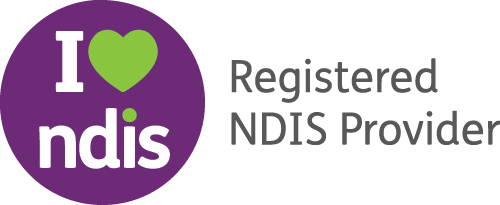Carer Burnout Is Real: Here’s How Support Coordination Can Help
Behind every NDIS participant is often a deeply committed carer who gives their time, energy, and love to ensure their loved one lives a meaningful life. But too often, the cost of this dedication is quietly carried, leading to carer burnout.
What Is Carer Burnout?
Carer burnout is a state of emotional, physical, and mental exhaustion. It builds over time and can result in chronic fatigue, feelings of isolation, irritability, and even depression. It affects not just the carer’s wellbeing, but also the quality of support the participant receives.
And it’s more common than most people realise.
Key statistics from Australia:
- Over
50% of unpaid carers experience high or very high levels of psychological distress.
- 60% report feeling socially isolated.
- 92% of carers say they regularly neglect their needs to prioritise their caring role.
- More than
40% of carers provide 60+ hours of unpaid care every week, which is more than a full-time job.
Sources: National Carer Survey, ABC News & YourLifeChoices (2024)
Where Support Coordination Makes the Difference
Support Coordination is one of the most effective ways for carers to receive practical relief, emotional support, and breathing space — all while ensuring their loved ones receive the care they need.
1. Finding the Right Providers = Real Respite
Respite isn’t just a “nice to have” — it’s vital. When Support Coordinators help connect participants to the right providers, whether for daily support, community access, or short-term accommodation, it gives carers something precious: time.
Time to sleep.
Time to work.
Time to breathe.
Time to just
be.
Managing everything alone, from provider waitlists and service agreements to scheduling and quality checks, can be overwhelming. Support Coordinators take that load off your shoulders so you can focus on what matters most.
2. Building a Sustainable Support Network
It’s not enough to have support; it has to be the proper support, in the right places, at the correct times. Coordinators help connect a whole network of services, including personal care, therapy, transport, and day programs, ensuring the participant’s needs are met and the carer isn’t constantly “filling the gaps.”
3. Reducing Crisis and Chaos
Support Coordinators step in with strategies when things go off track. Whether a provider cancels last-minute, a goal needs adjusting, or you don’t know where to turn, having a professional advocate makes a huge difference.
4. Sharing the Mental Load
Too often, carers are left to figure everything out on their own. Support Coordination means you don’t have to carry the whole load. You have someone in your corner who knows the NDIS, understands the system, and genuinely cares.
How the NDIS Helps Carers Directly
While much of the NDIS is focused on the participant, there are also significant benefits for carers — both directly and indirectly.
1. Access to Respite and In-Home Support
Through NDIS funding, carers can access short-term accommodation (respite) and personal care supports, giving them crucial time to rest and reset. This is essential in avoiding burnout and sustaining the caring role over the long term.
2. Support Coordination Reduces Mental Load
Carers are often the ones navigating service systems, comparing providers, chasing paperwork, and booking appointments. A Support Coordinator manages this process from linking services to adjusting supports when needs change, easing that heavy mental burden.
3. Therapy and Skill Building Supports
When participants receive allied health supports like occupational therapy or behaviour support, it helps them gain independence, which directly lightens the carer’s responsibilities. It also opens up new opportunities for community engagement and personal growth for the participant and the carer.
4. Greater Choice, Control, and Advocacy
The NDIS empowers families to have a voice in their loved one’s support plan. Carers play an active role in identifying needs, setting goals, and choosing services — fostering a sense of control and partnership that many felt was missing before the NDIS.
Together, these supports help create a more sustainable, balanced lifestyle for carers while improving outcomes for participants.
Carers Deserve Care Too
If you’re a carer, know this: asking for help is not a weakness. It’s one of the wisest, most compassionate things you can do for yourself and the person you support.
Support Coordination can restore balance to your life and help ensure the NDIS works for you rather than add to your stress.
Need a Coordinator Who Gets It?
At Hand in Hand Support Coordination in Melbourne, we work with participants and carers across Greater Melbourne to develop practical, personalised plans that ease the load and create space for well-being for everyone involved.
Let’s talk about what support could look like for your family.

We hope this blog was useful.
Hand in Hand Support Coordination specialises in personalised NDIS Support Coordination for participants with complex mental health and physical disabilities across Melbourne and Victoria, focusing on Level 2 and 3 support to create tailored support that aligns with goals and budget.




